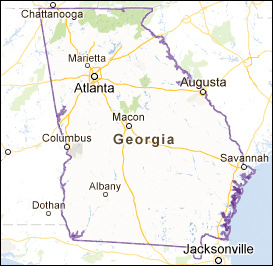Note: Last week in the polling recount Update, a typographical error was made in one of the quoted Iowa polls. The Siena College/New York Times survey should have read: Sen. Joni Ernst (R) 45%, Theresa Greenfield (D) 44% (not 55-44%). We apologize for the mistake.
By Jim Ellis
 Oct. 26, 2020 — There has been discussion about seeing a great number of political campaigns not being called on Election Night, thus creating what could become a rather long “political overtime” period. Laws in two states, however, could send key Senate races into political overtime, but for a different reason than not having all of the ballots either received or counted.
Oct. 26, 2020 — There has been discussion about seeing a great number of political campaigns not being called on Election Night, thus creating what could become a rather long “political overtime” period. Laws in two states, however, could send key Senate races into political overtime, but for a different reason than not having all of the ballots either received or counted.
Georgia and Maine have unique laws that create a secondary election period should no candidate receive majority support in the general election. Many states employ runoff contests in nomination battles, but Georgia and Maine are two entities with special laws governing the general election should no majority be achieved. In this particular year, three US Senate races, in a cycle where the battle for chamber control is close and intense, could be forced into political overtime in just those two places.
In Georgia, all contenders failing to reach the 50 percent mark sends the contest into a general election runoff. Considering the 2020 calendar, that secondary election date is scheduled for Jan. 5, meaning that the current election cycle would then be expanded for an additional two months. If the majority hinges on the two Georgia seats, it won’t be until the new year until we would have the opportunity of knowing which party would lead the Senate in the next Congress.
In the Georgia-A seat, polling hasn’t yet put one of the candidates, Sen. David Perdue (R) or Democratic nominee Jon Ossoff, at or over the 50 percent mark. In the last 10 polls of the Perdue-Ossoff race, neither man has reached 50 percent when any of the three minor party or independent candidates were listed, or referred to, in the survey questionnaire.
The Georgia-B campaign, which is the special election to fill the balance of resigned Sen. Johnny Isakson’s (R) final term, is certainly headed for political overtime. Here, the candidates are placed on the same ballot regardless of political party affiliation.
Polling throughout this election year suggests that none of the four major candidates, appointed Sen. Kelly Loeffler (R), Rep. Doug Collins (R-Gainesville), Rev. Raphael Warnock (D), and businessman Matt Lieberman (D), are anywhere close to majority support. Therefore, the top two finishers on Nov. 3 would advance to the secondary election on Jan. 5.





